
Mission Career College
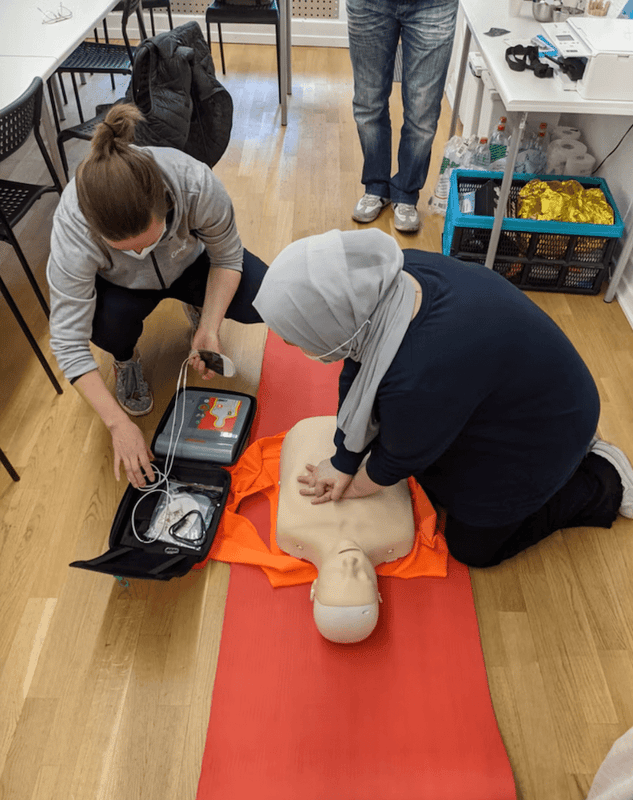
Classes from Mission Career
Basic Life Support (CPR)

This 6.0 Clock Hours (0.5 Credit Unit) program is designed to teach participants how to use an AED and perform CPR. Participants experience eight different scenarios simulating real life emergencies requiring the use of an AED. AED training course length is four hours. The course is designed for healthcare providers who care for patients in a wide variety of settings, both in and out of hospitals. The BSL Healthcare Providers Course teaches the skills of CPR for victims of all ages (including ventilations with a barrier device, a bag-mask device, and oxygen), use of an AED on adults and children and relief of FBAO in responsive and unresponsive victims. CPR courses train individuals how to recognize and provide care for airway, breathing and circulation emergencies. Participants learn action steps for choking and airway obstruction on conscious and unconscious victims. Participants are provided with information on how to recognize the signs and symptoms of a heart attack, sudden cardiac arrest, stroke and choking emergencies. Upon completion, of course participants will receive a certificate of completion.
Acute Care Nurse Assistant

This 90 hour (4.7 Credit Unit) program is designed to prepare students who are Certified Nurse Assistants for employment in an acute care facility as Acute Care Nurse Assistants. The competency based curriculum provides a review of nursing assistant skills with emphasis placed on specialized acute care areas such as medical, surgical, orthopedic, pediatric, and obstetrical units. This course includes both classroom instruction and clinical practice. By the completion of the course, students will demonstrate knowledge of skills required to assist the nurse in providing nursing care and service to the patient in an acute care setting. Basic academic, communication, interpersonal, and problem solving skills are reinforced throughout the course.
Home Health Aide
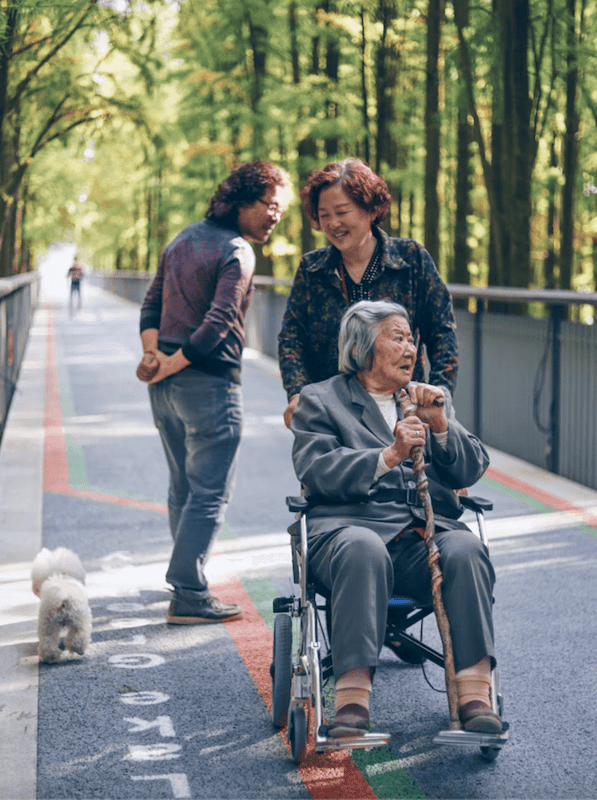
This 40 Clock hours (2.8 Credit Units) program is built upon the basic CNA training and prepares men and women to give care in the home. This includes a focus on the role of the home health aide, performing personal care in the home environment, medical and social needs of the client in the home setting with a focus on the family, nutritional needs and meal preparation, food storage, and cleaning and care tasks.
Massage Therapist

This 560 Clock hours (53.5 Credit Unit) program requires 30 weeks of training and provides the necessary knowledge, skills, and attitude development. The course consists of a series of lectures, conferences and clinical experiences specifically designed for massage therapy training. Massage Therapists work directly with independent customers, many choose to also work with members of the health care team – i.e., physicians, physical therapists, rehabilitation counselors, chiropractors, and acupuncturists, among others. This program trains students to academic technical knowledge, clinical skills, manual dexterity, sensitivity, and awareness. This program covers anatomy physiology, kinesiology, theory and practice for massage therapy, hands-on practice under supervision, ethics, and business practices.
Medical Assistant
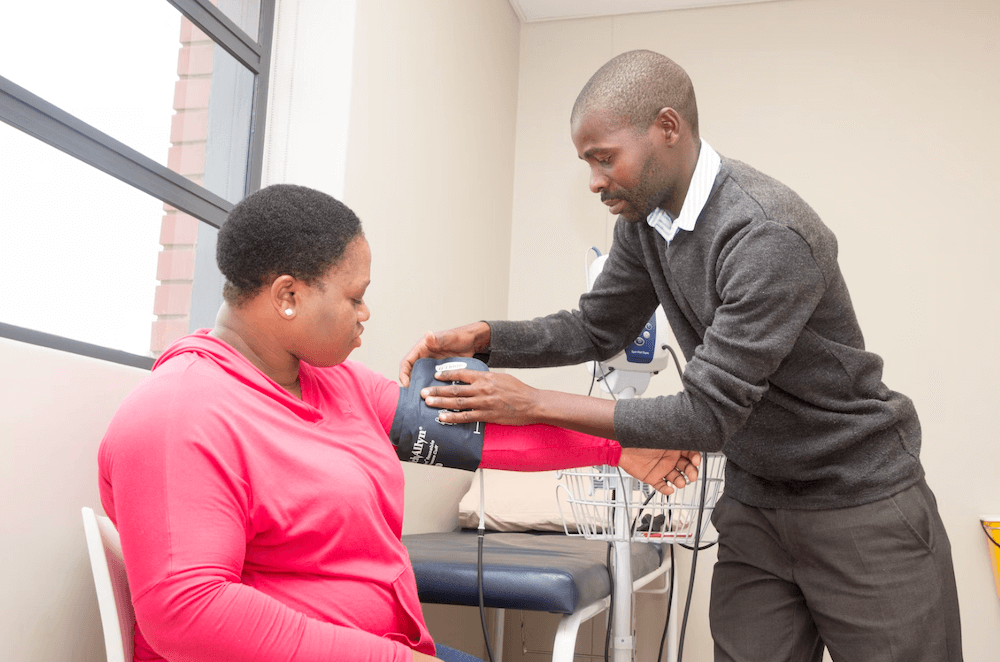
Medical Assistant Program at Mission Career College
Embark on a transformative journey to a rewarding healthcare career with the Medical Assistant program at Mission Career College. This intensive, in-person program is designed to equip you with the essential skills and practical experience needed to thrive as a medical assistant. Benefit from small class sizes, individualized attention, and the latest teaching methods, culminating in a comprehensive clinical externship that provides invaluable real-world experience. Prepare for certification and gain job placement assistance, paving your way to a vital role in the medical field.
Program Details:
- Cost: Unknown
- Duration: 11 weeks (7 weeks classroom theory, 4 weeks clinical externship)
- Schedule: Daytime, In-person
- Prerequisites: Unknown
- Accreditations: Unknown
- Career Outcomes: Certification preparation and job placement assistance provided to support career entry.
Solar Photovoltaic Installation

Complete an 80-hour week-long course covers the design and installation of photovoltaic (PV) systems, and involves actual hands-on work with PV systems and equipment. This program is intended for contractors, electricians, utilities, engineers and other practitioners, with an overall goal of developing system-knowledgeable professionals to help ensure the safety and quality of PV system installations. The course format includes a balance of classroom instruction and student-interactive exercises. These exercises include hands-on demonstration laboratories that simulate the process of designing, installing and commissioning grid-connected PV system, and are intended to develop the participant’s working knowledge of PV systems and equipment. An emphasis is placed on code compliance and accepted state-of-the-art industry design and installation practice. Upon successful completion of the course the student will be awarded a Certificate of Completion.
Certified Nurse Assistant

This 160 Clock hour (9.3 Credit Unit) program will train you to provide quality care to residents in long-term care facilities and professional organizations requiring the staffing needs of a CNA. It consists of 60 hours of theory and 100 hours of clinical practical training focused on all aspects of residential care on Six Principals of Care. Upon successful completing the course of 100 supervised clinical hours and 60 hours along with passing the Nurse Assistant course exam you will qualify to take the State Competency Test (CEP) to be a Certified Nurse Assistant (CNA). The course is led by Registered Nurses and Licensed Vocational Nurses as secondary instructions. The instructors are licensed by the Bureau for Private Postsecondary and Vocational Education, accepted by the California Department of Public Health and certified by the American Red Cross, and meet the State requirements.
Phlebotomy Tech

This 89 Clock hours (6.2 Credit Unit) program requires 4 weeks of training and provides the necessary knowledge, skills and attitude development. The course is comprised of a series of lectures, conferences and clinical experiences specifically designed for phlebotomy training. Phlebotomy Technicians work directly with laboratories, hospitals, blood banks, and many physician offices to collect a sufficient sample of blood from patients to determine accurate results needed for proper diagnosis. A Phlebotomist can ONLY withdraw blood from the body of a patient and NEVER inserts anything to the body of a patient. Successful completion of the course will allow students to sit for the National Phlebotomy Certification (NHA) examination and State of California Licensure.
In person Phlebotomy Classes
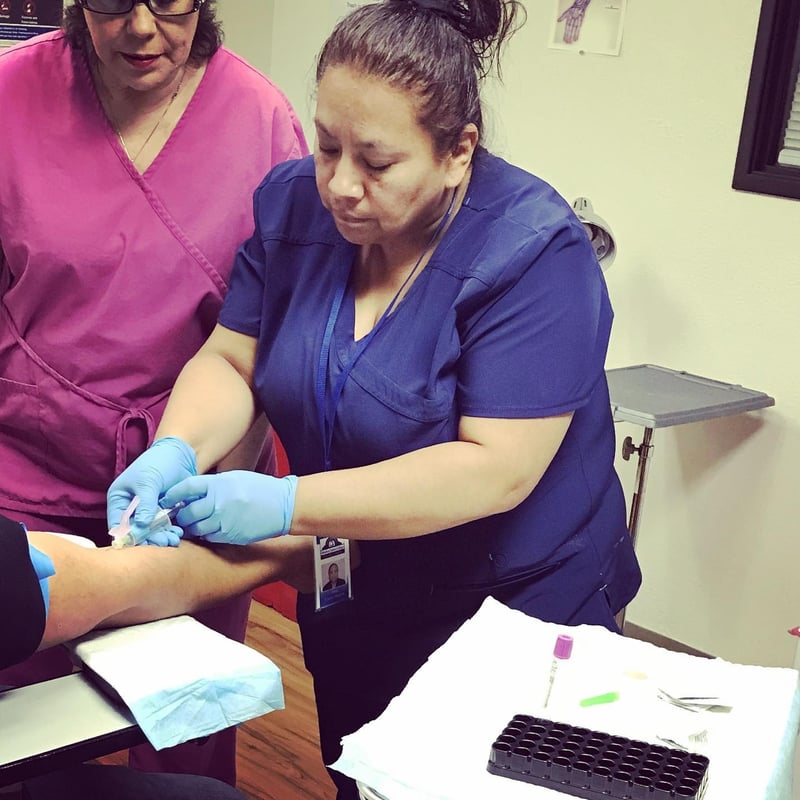
Phlebotomy Technician Program
Embark on a rewarding healthcare journey with Mission Career College's comprehensive Phlebotomy Technician program. This 4-week intensive course is designed to equip you with the essential skills for a successful career in phlebotomy, offering hands-on training, small class sizes for individualized attention, and flexible learning modalities including in-person, online, and hybrid options. Prepare effectively for state and national certification exams and gain practical, employer-responsive skills that ensure job readiness and a smooth entry into the workforce. Join a program focused on transforming your potential into tangible career opportunities.
Program Details:
- Cost: $600.00
- Duration: 4 weeks (3 weeks of classes + 1 week of externship)
- Schedule: Offered in-person, online, and hybrid formats
- Prerequisites: Good moral character, high school diploma or equivalent (GED), up-to-date physical exam and immunizations, and CPR certification.
- Accreditations: Approved by the California Department of Public Health (CDPH) as an accredited phlebotomy training program. Prepares students for state and national certification exams.
- Career Outcomes: Provides job placement preparation and assistance to help graduates successfully enter the workforce.
In person Home Health Aide Classes

Our Home Health Aide Program, building on basic CNA training, aims to equip students with skills to provide quality care in a home environment. This 40-hour program (2.8 Credit Units) focuses on:
- Understanding the role of the home health aide
- Providing personal care in the home environment
- Catering to the medical and social needs of clients in a home setting with a family-centric approach
- Addressing nutritional needs, meal preparation, and food storage
- Cleaning and maintaining the client's surroundings
Learning Objectives
Upon completion, students will be able to:
- Apply the skills acquired in the Certified Nurse Assistant Program
- Execute Home Health Aide skills effectively within an assisted living and home care setting
- Recognize and cater to specific personal care needs of assigned clients
- Prepare and serve meals based on basic nutrition guidelines
- Maintain a clean and comfortable patient environment
- Understand and implement measures to prevent skin breakdown
- Recognize their role in maintaining skin integrity and comprehend the signs and symptoms of skin breakdown
In person Pharmacy Technician Classes
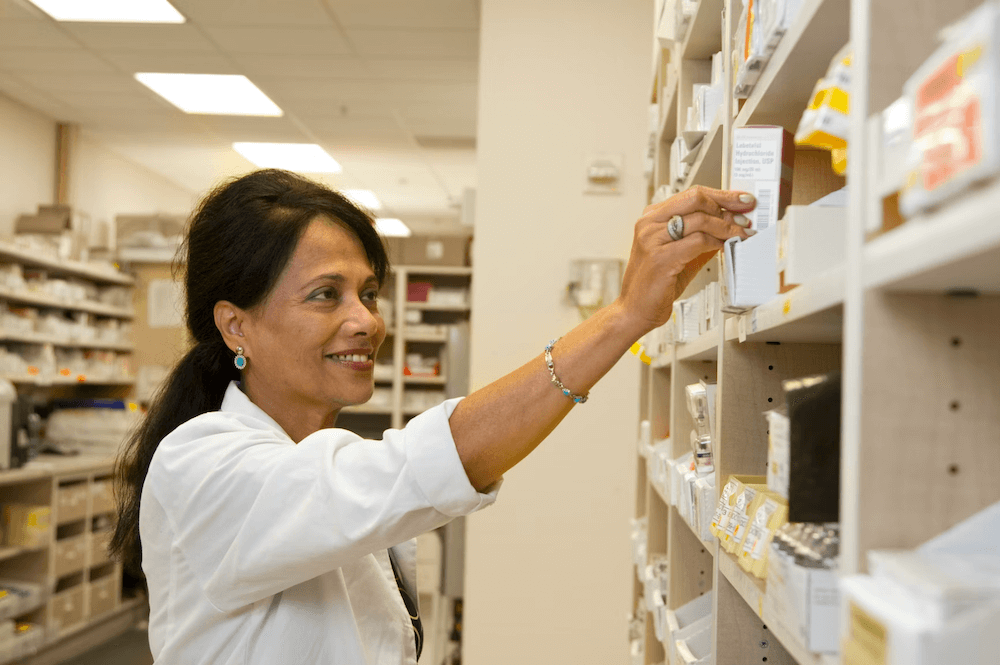
Pharmacy Tech Program - A Kickstart to Your Healthcare Career
Hey there, looking to start a career in healthcare? Our Pharmacy Tech program might just be the right fit for you! Here's what you can expect:
Program Snapshot
- With 51.5 Semester Credit Units (that's 720 clock hours), our program can have you job-ready in just 30 weeks!
- As a Pharmacy Tech, you're going to be a big help to pharmacists, handling tasks like counting tablets, labeling bottles, and preparing prescribed medications for patients.
What You'll Learn
- Get ready to tackle real-world situations! You'll learn to handle written prescriptions or refill requests from patients, and deal with electronically sent prescriptions from doctor's offices.
- If you're going to work in a hospital, nursing home, or assisted living facility, don't worry, we've got you covered! Our program includes extra training for these environments. You'll learn to read patient charts and prepare and deliver medication to patients.
So, if you're ready to jump into a rewarding career, our Pharmacy Tech program is a great place to start!
In person CPR / Basic Life Support Classes

Basic Life Support (CPR) Training Program
Our Basic Life Support (CPR) Training Program, lasting 6.0 Clock Hours (0.5 Credit Unit), is meticulously designed to impart comprehensive knowledge on using an AED and performing CPR.
Course Highlights
- Scenario-Based Training: Participants encounter eight different real-life emergency scenarios that necessitate the use of an AED.
- Audience: Ideal for healthcare providers attending to patients in varied settings, both within and outside hospitals.
- Skill Development: The program equips attendees with the ability to conduct CPR for victims across all age groups. Training includes the use of a barrier device, bag-mask device, and oxygen.
- Recognizing Emergencies: Trainees will learn how to discern and manage airway, breathing and circulation emergencies, including choking and airway obstruction in both conscious and unconscious individuals.
- Understanding Symptoms: The course provides crucial insights on identifying signs and symptoms of critical health events such as a heart attack, sudden cardiac arrest, stroke, and choking emergencies.
Upon successful completion of the course, participants will receive a certificate, valid for two years.
In person Medical Assistant Classes

Medical Assistant Program
Get ready to kickstart your career in healthcare with our Medical Assistant Program. With an emphasis on practical knowledge and skills, this program prepares you for entry-level roles in healthcare settings.
What Will You Learn?
-
Front Office Administration: Master the 'front office' skills required in a health care setting. You'll learn how to efficiently handle administrative tasks.
-
Clinical Skills: The program also prepares you for working in a clinical environment. This can be a hospital, doctor's office, or medical clinic.
-
Hands-on Experience: To cap it all, our program includes a 160-hour externship. This gives you the opportunity to put what you've learned into practice in a real healthcare setting.
By the end of this 420-clock-hour program, you'll be equipped with the basic knowledge and skills you need to begin your journey as an entry-level Medical Assistant.
In person Certified Nursing Assistant Classes
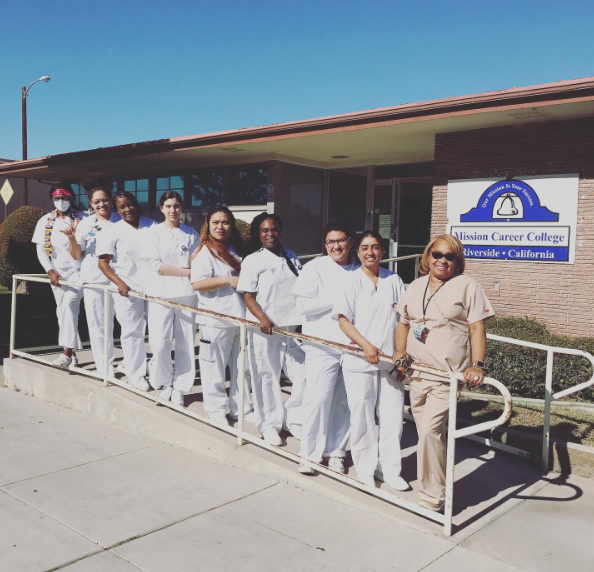
Certified Nurse Assistant Course
Ready for a career in healthcare? Our Certified Nurse Assistant (CNA) program offers a robust 160-hour course, designed to set you up for success in long-term care facilities and professional organizations that require CNAs.
Course Highlights:
- Broad Coverage: With 60 hours of theory and 100 hours of practical training, this program covers everything from the basics to the six principles of care.
- Qualified Instructors: The course is led by registered and licensed vocational nurses certified by the American Red Cross, approved by the California Department of Public Health, and licensed by the Bureau for Private Postsecondary and Vocational Education.
- Outcome-Oriented: After successfully completing the course and passing the Nurse Assistant course exam, you're eligible to take the State Competency Test (CEP) to become a certified CNA.
This training is an effective springboard to a fulfilling career in the healthcare industry. Get ready to make a difference in people's lives!
In person Acute Care Nursing Assistant Classes

Acute Care Nurse Assistant Program
Elevating Your Healthcare Career
Are you a Certified Nurse Assistant looking to take your career to the next level? Our Acute Care Nurse Assistant program is here to help you specialize and stand out in the field.
Comprehensive Curriculum
Our program is a blend of 90 hours of comprehensive theoretical and practical training. We place special emphasis on a variety of acute care areas such as:
- Medical
- Surgical
- Orthopedic
- Pediatric
- Obstetrical units
More than Just Practical Skills
By the end of the program, you'll not only be equipped with the knowledge and skills required to assist nurses in acute care settings but also enhance your academic, communication, interpersonal, and problem-solving abilities.
Hands-on Training
Our curriculum includes:
- 32 Hours of Theory
- 58 Hours of Hands-on Training
In person Electrocardiogram (ECG/EKG) Classes
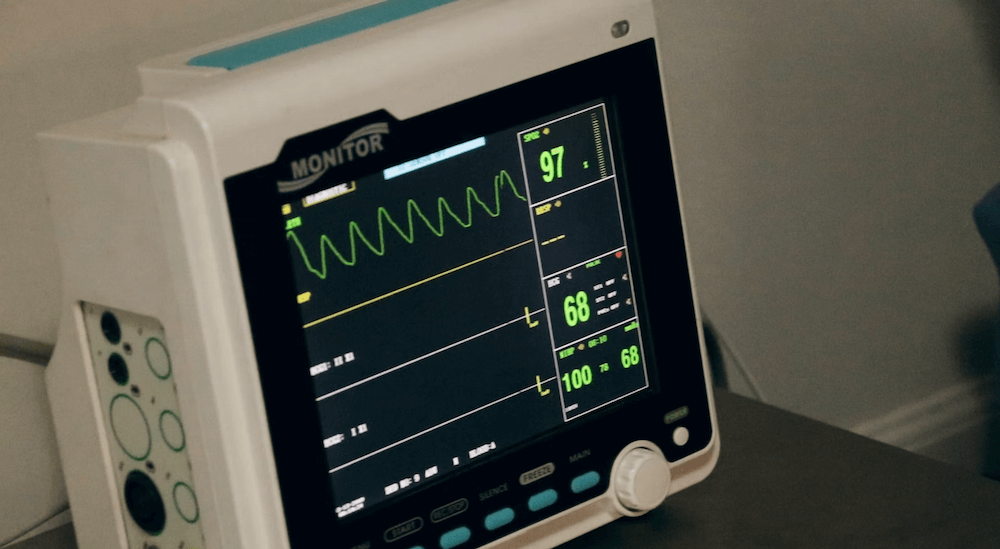
EKG Tech Training Program Overview
The EKG Tech program offers a thorough educational experience that lays the groundwork for coursework in Cardiovascular Technology. On completion, our graduates find themselves well-prepared to join the workforce in various health care facilities across the nation.
Roles & Responsibilities
- EKG Technicians work in a diverse range of settings, including hospitals, health centers, private practices, clinics, nursing homes, and emergency rooms. They are integral members of the medical team.
Program Objectives
- Understand and articulate medical terminology associated with the cardiovascular system.
- Clearly describe the duties and obligations of an EKG Technician.
- Identify normal and anomalous patterns in EKG leads.
- Demonstrate proficiency in preparing a patient for EKG testing.
- Execute a 12 lead EKG and treadmill stress test correctly.
- Implement the skill set acquired during the EKG Program.
- Deliver optimal EKG services within the defined scope of practice.
- Recognize and provide specific personal care for allocated clients, ensuring all tasks are performed accurately.
Program Duration
- The program comprises 32 hours of theory.
About school
Mission Career College
Mission Career College, located in Riverside, California, is a private higher education institution specializing in career training, offering over 15 vocational courses including Certified Nurse Assistant, Phlebotomy Tech, and Solar Photovoltaic Installation. The college emphasizes small class sizes with individual attention and hands-on training, including computer instruction, designed to empower student success and professional growth. Their mission is to provide quality education and assist graduates in gaining employment through effective placement preparation and job placement assistance programs.
Highlights:
- Small classes with individual attention
- Hands-on training
- Hands-on computer instruction
- Diverse range of career training programs including unique offerings like Solar Photovoltaic Installation and Mobile Crane Operator
In the Riverside, CA area
9731 Magnolia Ave, Riverside, CA 92503